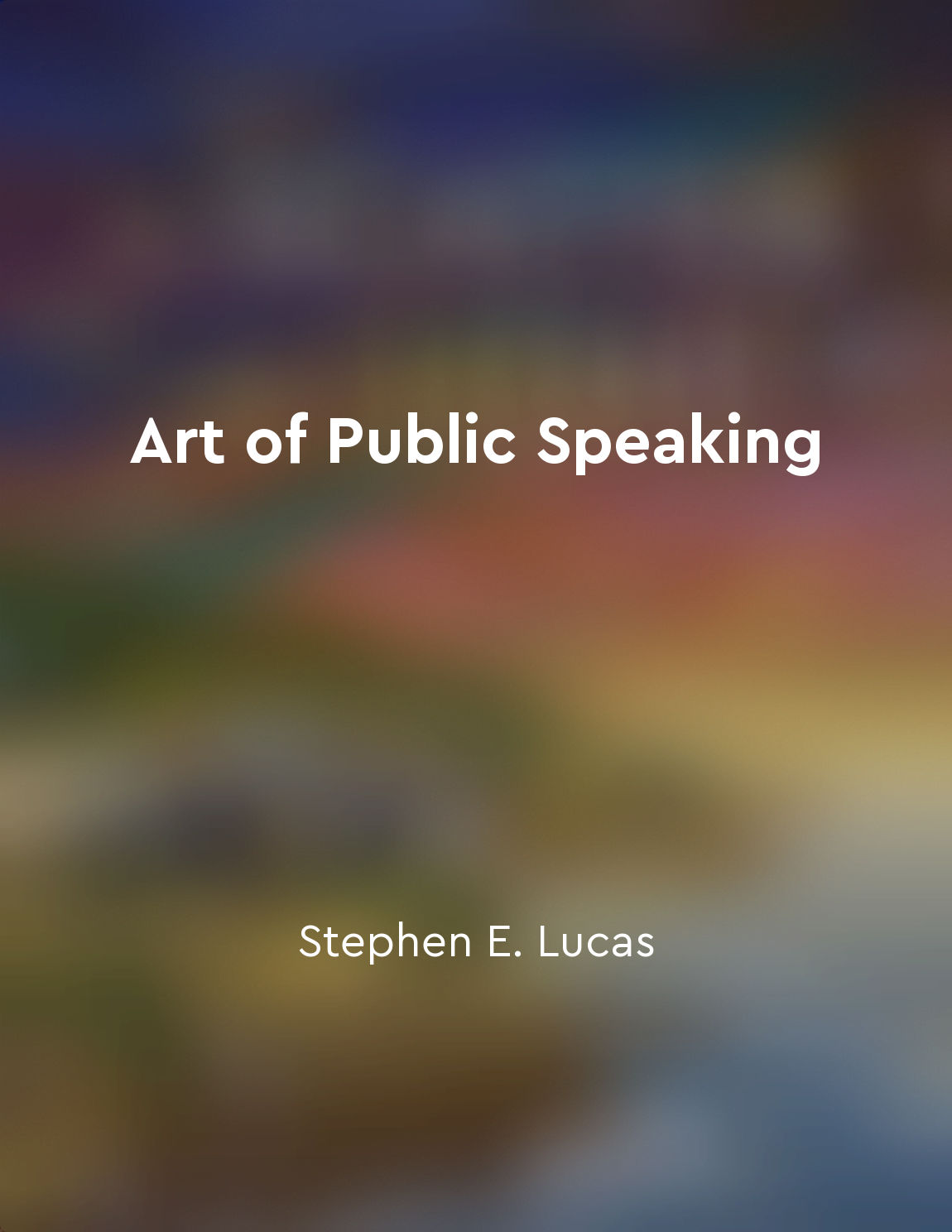Maintain eye contact with your listeners from "summary" of Art of Public Speaking by Stephen E. Lucas
When you speak to a group of people, it is important to establish a connection with them. One way to do this is by maintaining eye contact with your listeners. This simple act can have a powerful impact on your audience, helping them feel engaged and connected to what you are saying. Eye contact is a powerful nonverbal communication tool that can help you build trust and credibility with your audience. When you make eye contact with someone, you are showing them that you are paying attention to them and that you care about what they have to say. This can help to create a sense of connection and rapport between you and your listeners. Maintaining eye contact with your listeners can also help you gauge their reactions to what you are saying. By looking into their eyes, you can see if they are nodding in agreement, smiling in understanding, or frowning in confusion. This can help you adjust your delivery to better meet the needs of your audience and ensure that your message is being received as intended. In addition, maintaining eye contact with your listeners can help you convey confidence and authority. When you look directly at your audience members, you appear more confident and in control, which can help to enhance your credibility as a speaker. This can make your audience more likely to trust and believe in what you are saying.- Maintaining eye contact with your listeners is a simple yet powerful way to establish a connection with your audience, gauge their reactions, and convey confidence and authority as a speaker. By making eye contact with your listeners, you can create a more engaging and impactful speaking experience for both you and your audience.


